Saint of the Day – 19 July – St Vincent de Paul (1581-1660) Confessor. “Holy Hero of Divine Charity.”
The Roman Martyrology states of him today: “St Vincent de Paul, Confessor, who slept in the Lord on 27 September, Leo XIII declared the Heavenly Patron before the Thron of God, of all Charitable Organisations throughout the Catholic world, owing in any manner, their origin to him.”
Vincent’s body was exhumed in 1712, 53 years after his death. The written account of an eyewitness states that “the eyes and nose alone showed some decay“. However, when it was exhumed again during the Canonisation in 1737, it was found to have decomposed due to an underground flood . His bones have been encased in a waxen figure which is displayed in a glass Reliquary in the Chapel of the headquarters of the Vincentian fathers in Paris,
St Vincent de Paul (1581-1660)
Confessor, Founder of the Congregation of the Mission (Vincentians) and Co-Founder of the Sisters of Charity, is an outstanding example of great love for the poor and unfortunate and the Celestial Patron of all Catholic Charitable Societies. (added by Pope Leo XIII).
By Fr Francis Xavier Weninger SJ (1805-1888)
Vincent de Paul, a Frenchman, was born at Pouy, not far from Dax, in Gascony and from his boyhood, was remarkable for his exceeding charity towards the poor. From the care of his father’s flocks, he was sent to study letters. He learned the humanities at Dax and Theology first at Toulouse, then at Saragossa. Having been Ordained Priest and having taken a Degree in Theology, he fell into the hands of the Turks and was led captive by them, into Africa. But being sold into slavery, he won his owner (an apostate) back to Christ. By the help of the Mother of God, therefore, Vincent and his owner hurried away from the shores of the barbarians. Then Vincent undertook a journey to Rome, to visit the thresholds of the Apostles.
Having returned to France, he governed, in a most saintly manner, first, the Parish of Clichy and then, that of Chatillon. He was appointed by the King as Principal Chaplain of the French galleys and showed marvellous zeal in striving for the salvation of both the drivers and the rowers. The holy Francis de Sales, appointed him Superior of the Nuns of the Visitation, whom he ruled for nearly forty years, with so great prudence that he amply justified the opinion of their most holy Founder, who confessed that he knew no worthier Priest than Vincent.
To the preaching of the Gospel unto the poor, especially to the country people, he devoted himself unweariedly, until he was disabled by old age. To this apostolic work he obligated both himself and the members of the Congregation, which he specially founded under the name of Secular Priests of the Mission, by a perpetual vow confirmed by the Holy See. And how greatly he laboured for bettering the discipline of the clergy, is attested by the Seminaries erected for senior clerics, by the frequency of sacred conferences among the Priests and by the religious exercises preparatory to the Sacrament of Holy Orders; for which purposes, as well as that of giving pious retreats for laymen, he desired that the Houses of his Institute, should be freely opened. Moreover, for the extension of faith and piety, he sent evangelical labourers, not only into the Provinces of France but also into Italy, Poland, Scotland, Ireland and even to Barbary and to the Indies.
And at the death of Louis XIII, whom he had attended and exhorted on his deathbed, Vincent himself was summoned by the Queen, Anne of Austria, mother of Louis XIV and made a member of the young King’s Council of Conscience. In this position, he most zealously urged that only the more worthy men should be placed in authority over the Churches and Monasteries; that civil discords, single combats, slowly-spreading false doctrines, which he both perceived and dreaded, should be ended; and that due obedience should be rendered by all, to the apostolic decisions.
There was no kind of misfortune which he did not, with fatherly tenderness, endeavour to relieve . The faithful groaning beneath the Turkish yoke, infants which had been abandoned, wayward youths, maidens exposed to danger, Nuns driven from their Convents, fallen women, convicts condemned to the galleys, infirm strangers, disabled workmen and even lunatics and beggars without number, all these he received and devoutly assisted with resources and in hospices, which have lasted to this day. When Lorraine, Champagne, Picardy and other Provinces were devastated by plague, famine and war, he relieved their necessities with an open hand. He founded many societies for seeking out and alleviating the lot of the wretched, among them, a celebrated association of matrons, widely spread under the name of Sisters of Charity. He likewise promoted the foundation of the Daughters of the Cross, of Providence and of St Genevieve, for the education of the weaker sex.
Amid these and other most important affairs, he was ever intent upon God, affable to everyone and always true to himself, simple, upright, lowly and ever shrank from honours, riches and luxuries. He was heard to say that in nothing was there any pleasure for him, except in Christ Jesus, Whom he desired to imitate in all things.
At length, worn out with bodily pains, labours and old age, on 27 September in the year of salvation 1660 and, in the eighty-fifth year of age, at Paris, in the House of St Lazare, which is the Motherhouse of the Congregation the Mission, he calmly fell asleep.
Since he became illustrious for virtues, merits and miracles, Clement XII placed him among the Saints, assigning 19 July as his annual feast. And Leo XIII, at the earnest request of many Bishops, claimed and appointed this notable hero of divine charity, who has deserved so exceedingly well, of every class of men, the special Patron before God, of all the Charitable Societies existing in the entire Catholic world and in any way soever, emanating from his foundation.


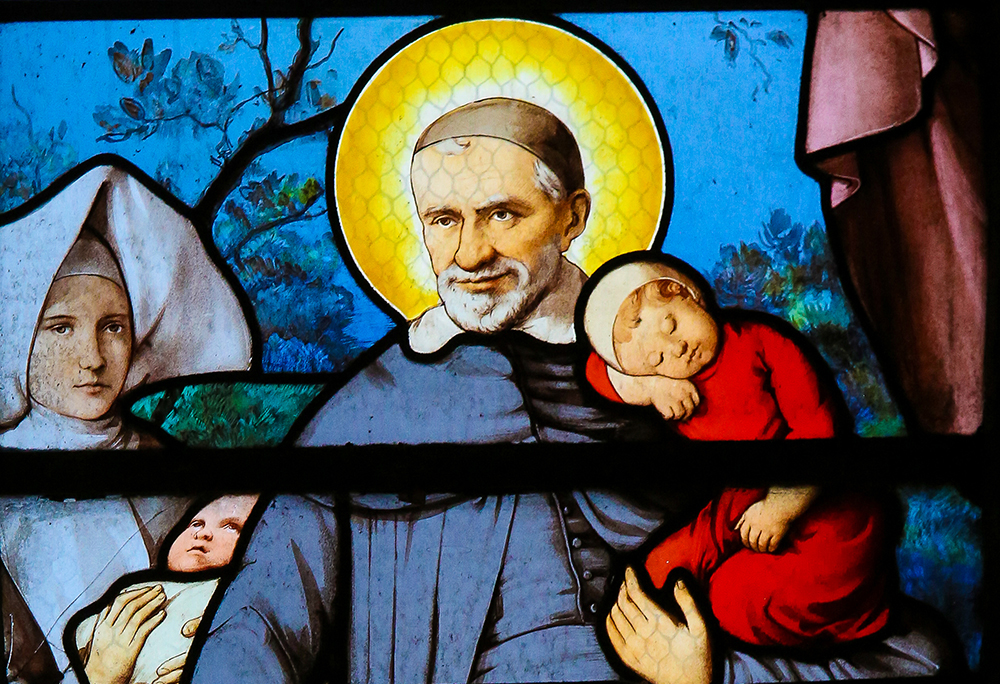
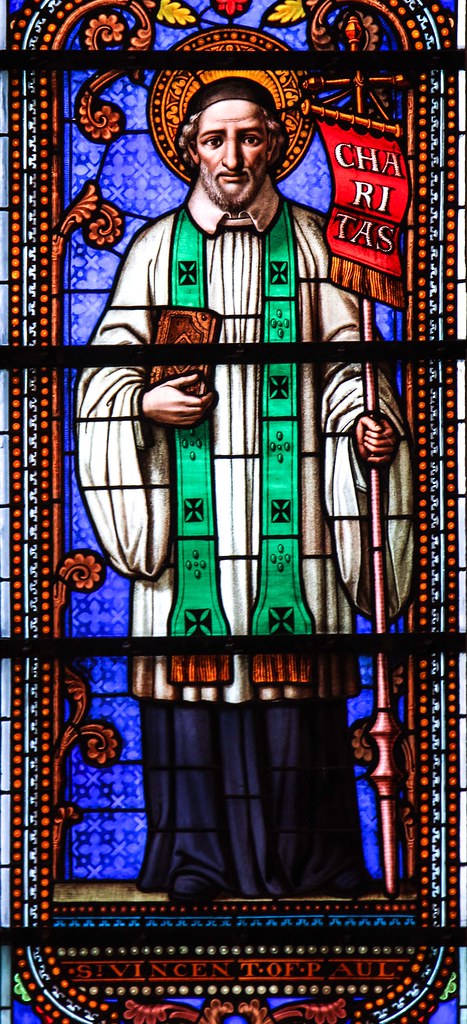









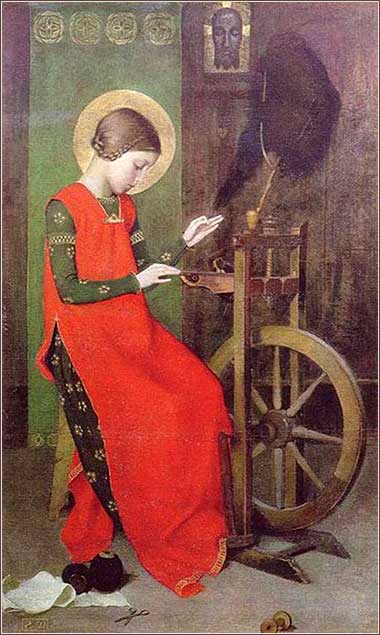












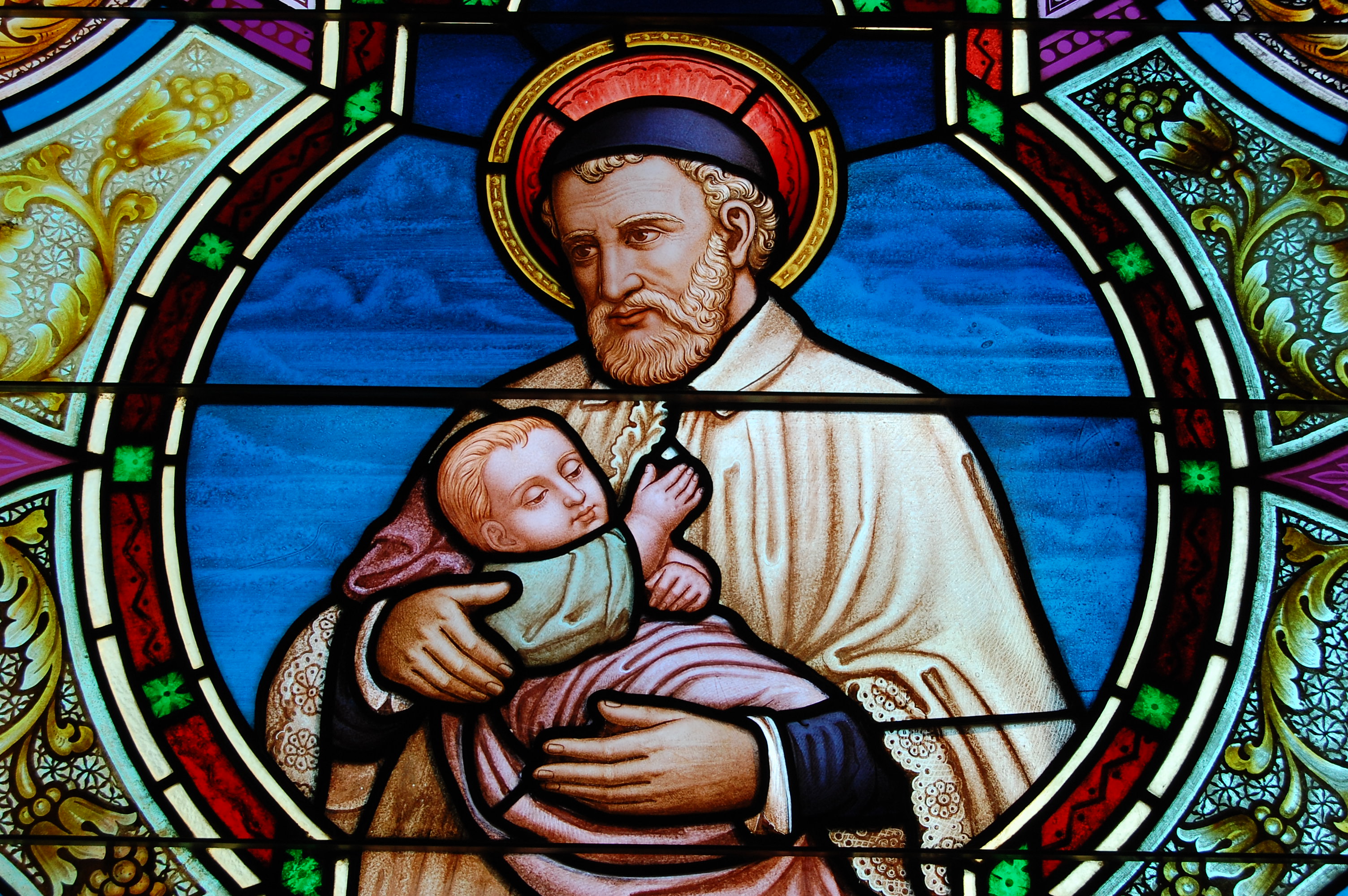
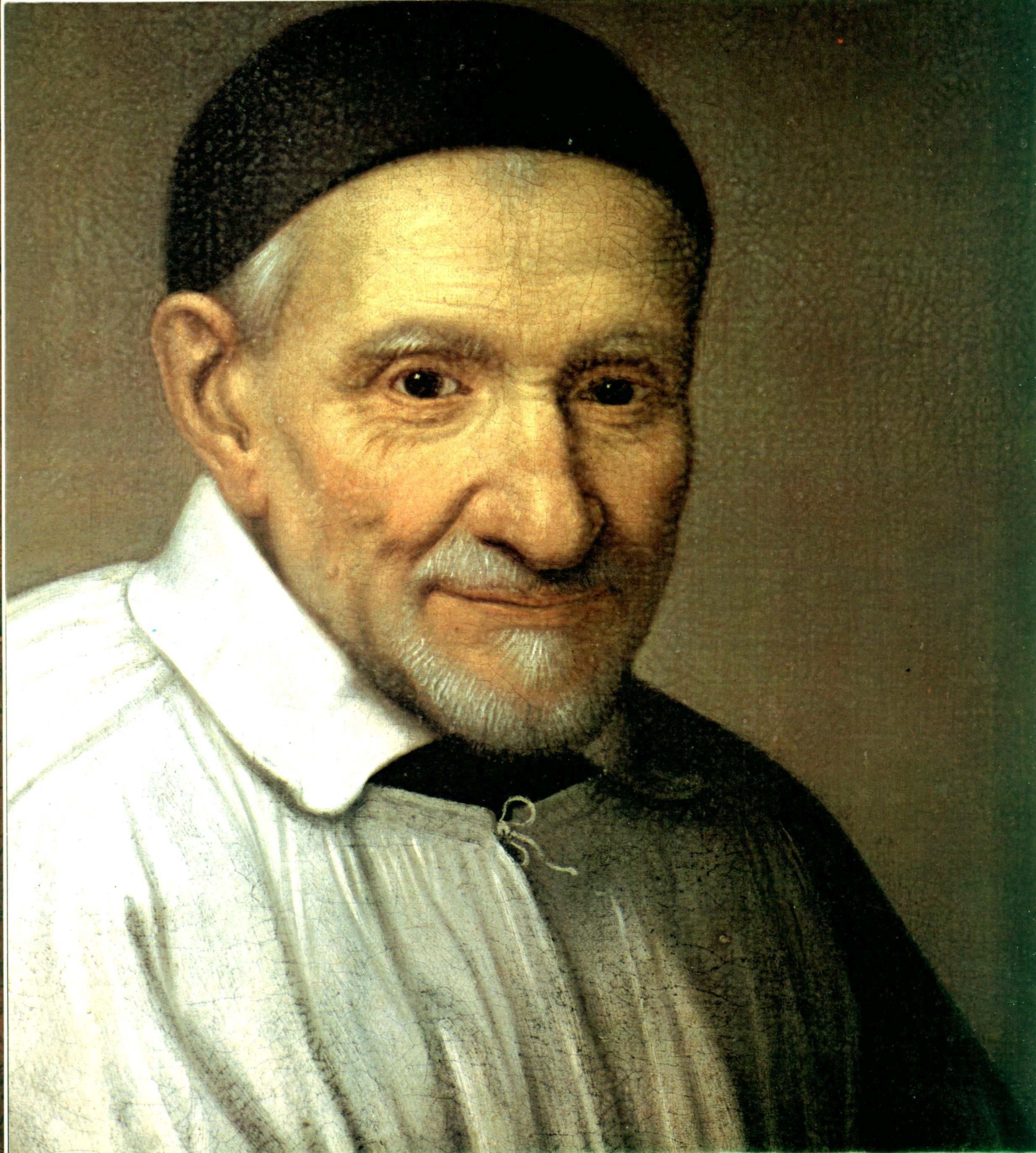

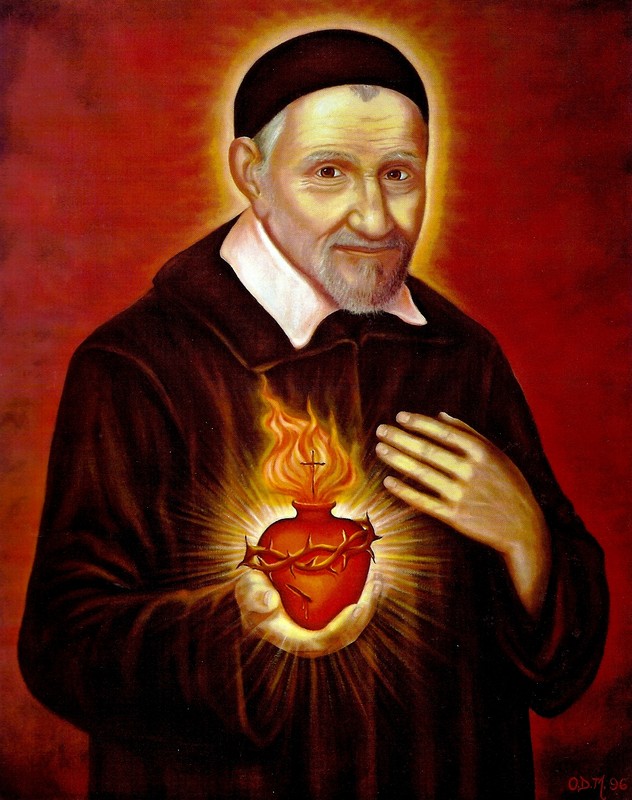


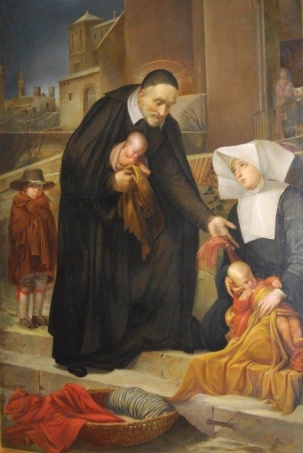



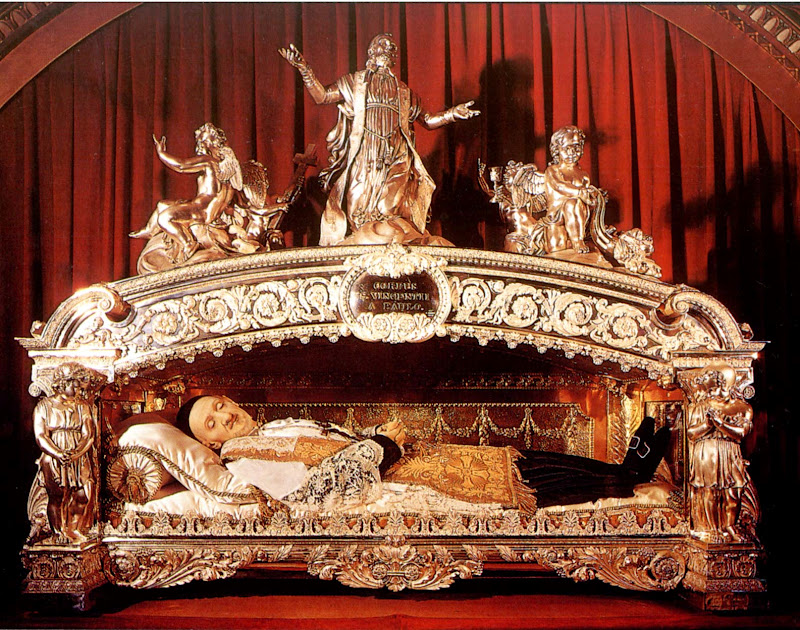
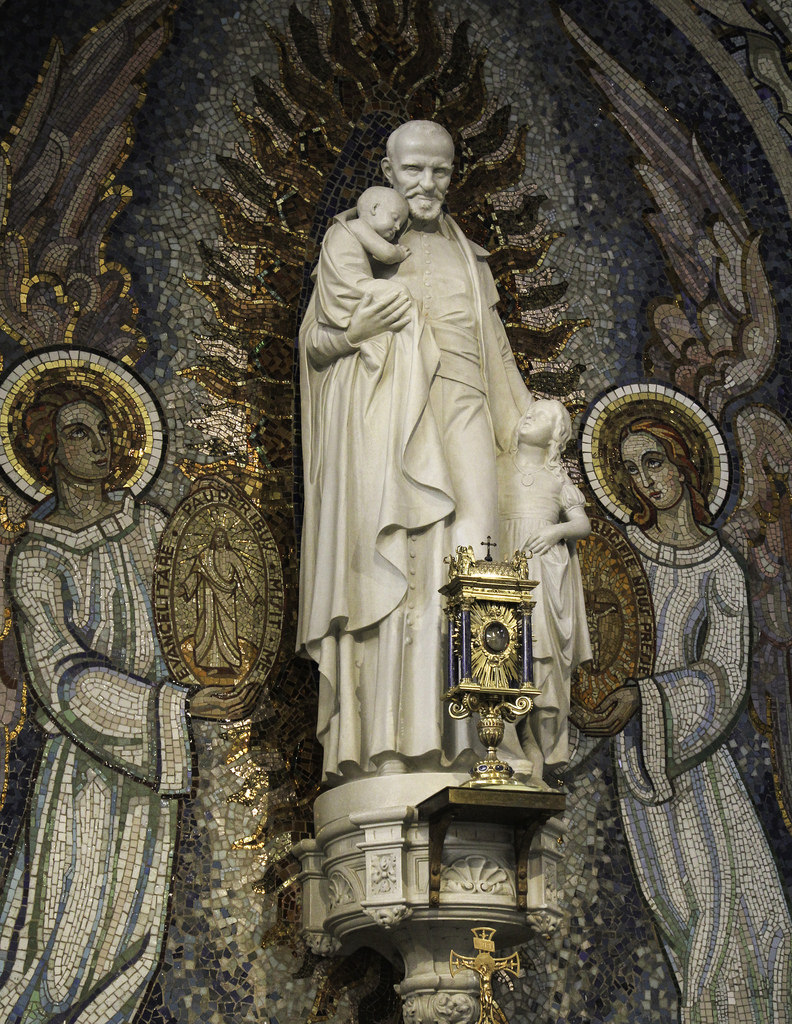
You must be logged in to post a comment.